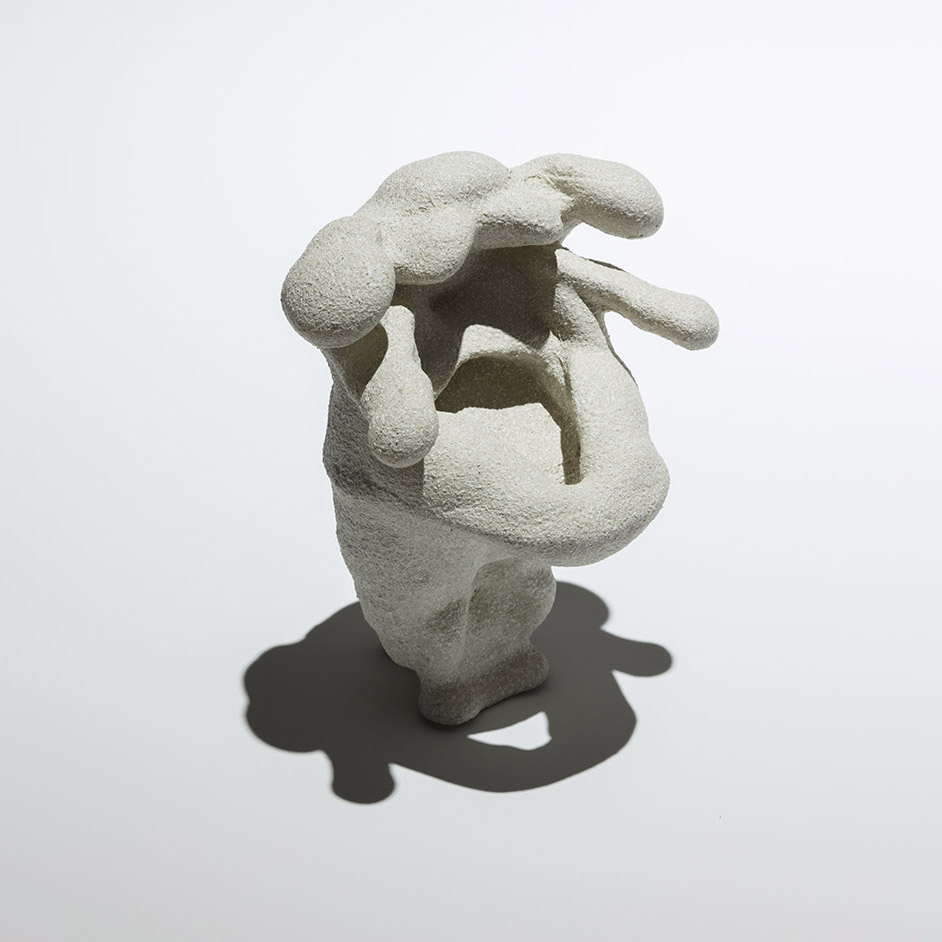En finir

Devenir à soi-même une usine. Produire pour passer à l’acte ou l’inverse. Fascination pour la matière, pour la forme, pour une vie consumée à faire entrer dans le monde des objets qui ne devraient pas exister, qui ne portent aucune nécessité, mais qui, comme possibles, sont contingents. L’inconsistance conquise.
Mais cette légèreté cède sa place à l’accumulation fétichisée, aux sculptures, aux tirages, aux dessins qu’il faut stocker. On est bien seul face à ses objets et on se dit que personne n’en a besoin, ce qui semble logique pour des objets seulement possibles qui ne viennent combler aucune attente. Cette accumulation matérielle semble être, elle aussi, le symptôme précieux de ce surplus du monde, de cette transformation qui ne vient rien combler et qui répond, de quelques façons, à la généralisation de l’instrumentalité.
On pense bien sûr au gâchis qui n’est plus seulement part maudite, évènement, mais qui se rattache qu’on le veuille ou non à la surproduction industrielle qui extrait de la matière pour la rendre intransformable, débris, déchet, pollution. On ne croit pas pour autant à une forme de parcimonie, caractère furtif de l’objet infime. On aimerait poursuivre la surproduction en la rendant plus fluide et perverse, se retournant contre elle, fluxion laminaire au croisement de la matière et de l’objet.
Et on imagine l’hyperproduction comme une retenue et un barrage dont l’objet ne serait pas d’arrêter mais de céder. On imagine ne produire que des objets possibles et de ne passer à l’acte que si la production est accordée, production qui sera aussi stockage. Les possibles ne sont pas des concepts, c’est qu’on ne veut plus rien garder car tout est au dehors.
Projet en cours.
–
Become a factory by myself. Produce to act or the other way around. Fascination for matter, for form, for a life consumed to bring into the world objects that should not exist, that bear no necessity, but which, as possible, are contingent. Inconsistency conquered.
But this lightness gives way to accumulation, to sculptures, to prints, to drawings that must be stored. One is quite alone in front of one’s objects and one tells oneself that no one needs them, which seems logical for objects that are only possible and that do not come to fill any expectations. This material accumulation also seems to be the precious symptom of this surplus of the world, of this transformation that comes to fill nothing and that responds, in some ways, to the generalization of instrumentality.
One thinks, of course, of the waste that is no longer just a cursed part, an event, but which is linked, whether we like it or not, to the industrial overproduction that extracts matter to make it intransformable, debris, waste, pollution. We do not believe, however, in a form of parsimony, the furtive character of the infinitesimal object. One would like to pursue overproduction by making it more fluid and perverse, turning against it, laminar flow at the crossroads of matter and object.
And one imagines hyperproduction as a restraint and a dam whose object would not be to stop but to yield. We imagine only producing possible objects and only acting if production is granted, production that will also be storage. Possibilities are not concepts, it’s that we no longer want to keep anything because everything is outside.
Project in progress.
